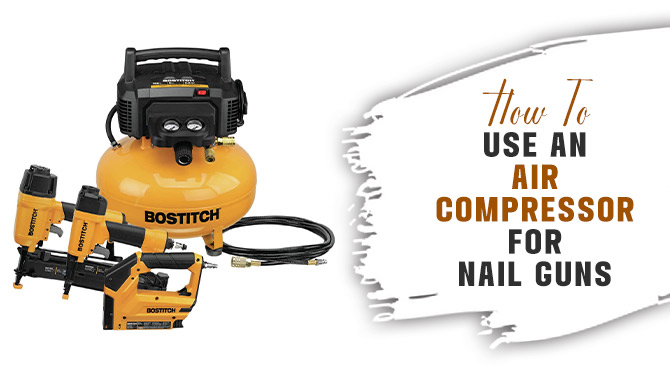An air compressor is a crucial piece of equipment for various industries, from construction to manufacturing. The machine is designed to convert power into energy stored in pressurized air, which can use to power pneumatic tools and machinery.
However, like any complex mechanical device, air compressors require regular maintenance to ensure they function optimally and efficiently. We will discuss the key steps to take to Air Compressor Maintenance properly.
From regular inspections and cleaning to lubrication and filter replacement, we will cover everything you need to know to keep your compressor running smoothly. Whether you are a professional mechanic or a DIY enthusiast, this guide will provide you with the knowledge and tools necessary to extend the lifespan of your air.
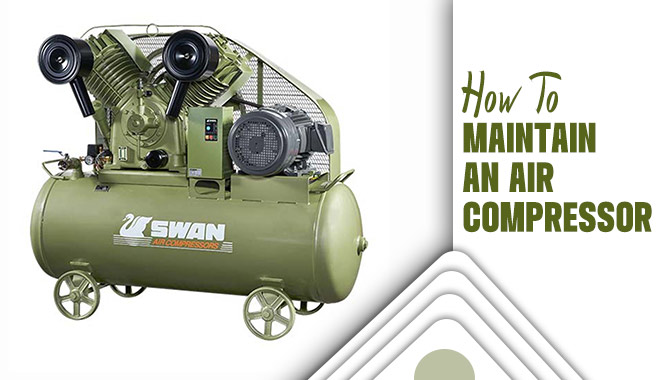
Understanding Different Types Of Air Compressors
Air compressors are essential tools in various industries, from manufacturing to construction. Understanding the different types of air compressors is vital to ensure you choose the right one for your needs.
The most common air compressors include reciprocating compressors, rotary screw compressors, and centrifugal compressors. Reciprocating compressors compress air with a piston, while rotary screw compressors use two rotors to compress air. Centrifugal compressors work by using a spinning impeller to increase air pressure.
Reciprocating compressors are ideal for small-scale applications, while rotary screw compressors are more suitable for large-scale operations. People typically use centrifugal compressors in large industrial settings where high volumes of compressed air are required.
When choosing an air compressor, it is important to consider factors such as the required air pressure, the volume of compressed air needed, and the environment in which the compressor will be used.
Now We Are Discussing Air Compressor Maintenance
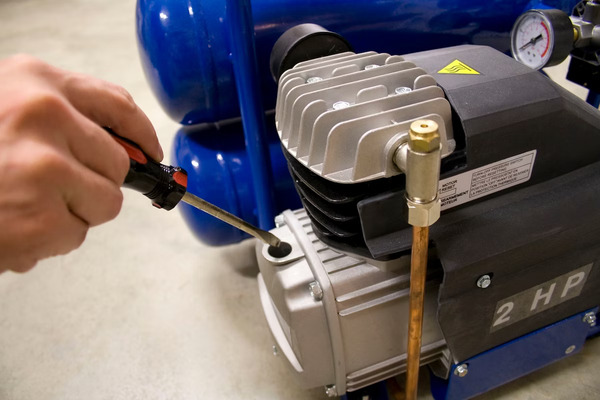
Air compressors are essential tools used in various industries, such as automotive, construction, and manufacturing. Keeping them in good condition is crucial to ensure maximum efficiency and lifespan. Now we are discussing air compressor maintenance:
Maintenance And Basics
Air compressor maintenance is crucial to ensuring an air compressor’s proper functioning and longevity. Maintenance Basics include a number of things that you should do on a regular basis to keep your compressor running smoothly. For everyone, Regularly clean or replace the air filter to prevent blockages that could lead to reduced airflow and damage to the compressor.
Additionally, inspect the belts and hoses for any signs of wear and tear and replace them as necessary. Draining the air tank regularly is also important to prevent rust or corrosion.
Another essential aspect of air compressor maintenance is checking for and repairing leaks in the system. Air leaks are a common problem that can lead to a decrease in the efficiency of the compressor and can cause it to work harder than necessary.
Regularly inspecting the compressor and its components can help you identify leaks and other potential issues early, allowing you to take corrective action.
Checking And Changing The Oil
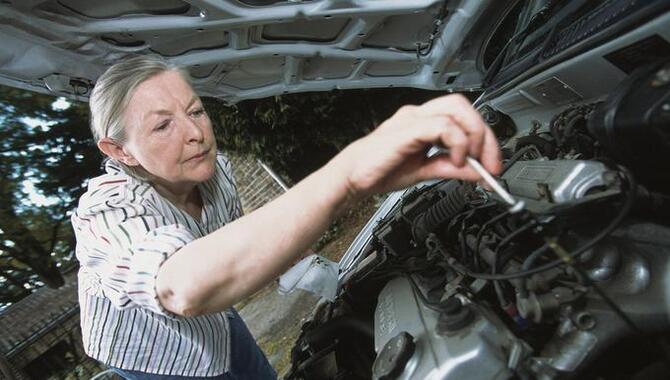
Checking and changing the oil for the air compressor is an important part of maintenance that should not overlook. The oil regularly ensures the compressor runs smoothly and efficiently, preventing potential damage.
It is recommended to check the oil level every 50 hours of use at least once a month, whichever comes first. To check the oil level, turn off the compressor and wait for it to cool down. Remove the oil fill cap and check the oil level with a dipstick or sight glass. If the oil level is low, add the recommended oil until it reaches the proper level.
It is also important to change the oil regularly to ensure the compressor is running at its best. The frequency of oil changes will depend on the type of compressor and the amount of use it receives. Generally, oil should change every 500-1000 hours of use or every 3-6 months.
Air Filter Replacement
Regular maintenance of an air compressor is essential to ensure its longevity and efficiency. One crucial aspect of maintenance is replacing the air filter.
The air filter in an air compressor is responsible for removing unwanted particles and contaminants from the air before it enters the compressor. Over time, the filter becomes clogged with debris, reducing the compressor’s efficiency and potentially causing damage to the motor. To avoid these issues, it is recommended to replace the air filter every 6 to 12 months, depending on usage.
When choosing a replacement air filter, it is essential to consider the type and model of the compressor as well as the environment in which it operates.
Filters come in different materials and designs, such as foam, paper, or pleated. Some also have additional features like moisture removal capabilities. Regular air filter replacement protects your compressor and ensures clean, safe air is delivered to your tools or equipment. It is a small investment that can save you from costly repairs and replacements in the long run.
Inspection Of Belts, Hoses, And Fittings
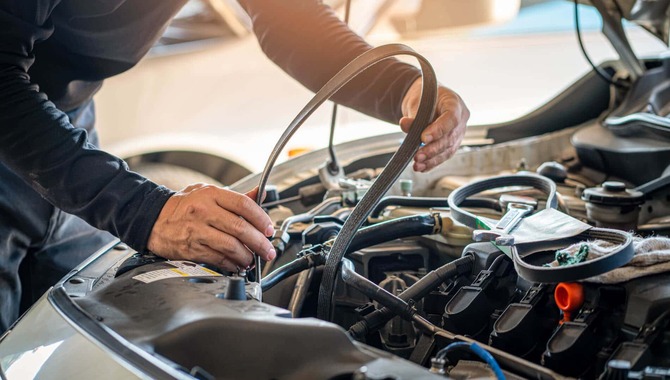
Regular inspection of belts, hoses, and fittings ensures smooth and uninterrupted machinery and vehicle operation.
These components are susceptible to wear and tear and, if not monitored regularly, can lead to costly repairs or accidents. During inspections, checking for signs of cracking, fraying, or bulging on belts and hoses and any leaks or loose connections in fittings is important.
Any damaged components should be promptly replaced to prevent further damage or failure. In addition, proper maintenance of belts, hoses, and fittings can increase their lifespan and improve overall efficiency.
Lubrication, cleaning, and tightening of fittings are some of the maintenance practices that keep these components in good working condition. Regular inspections and maintenance can also help identify potential issues before they become major problems, saving time and money in the long run.
Cleaning And Maintenance Of Tanks
One should never overlook cleaning and maintaining tanks for air compressors, as it is an essential task. The designers have designed these tanks to hold compressed air at high pressures, so any damage or buildup can lead to serious safety hazards. Regular cleaning of the tank’s interior is necessary to prevent corrosion, rust, and other damage that can weaken the tank’s structure.
The cleaning process involves removing any accumulated debris or residue from the tank’s surface, such as oil, grease, and dirt. You can use specialized cleaning agents and tools, such as a wire brush or sandblasting equipment.
In addition to cleaning, it’s important to maintain the tank’s integrity through routine inspections and repairs. You should regularly inspect for any signs of wear and tear, such as cracks, leaks, or bulges, which can indicate a potential failure. Repairs should be done immediately to prevent further damage and ensure the tank’s safe operation.
Regular Testing And Calibration
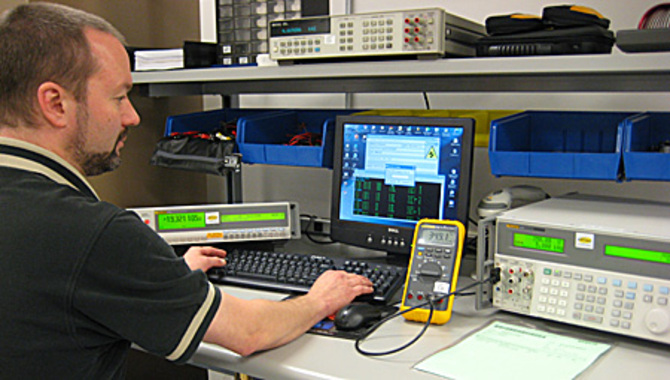
Regular testing and calibration are essential components of any quality control process. To maintain accuracy and reliability. Ensuring that testing equipment and instruments function properly and provide consistent results is important.
Routine calibration can achieve this. This involves comparing a device’s readings to a known standard and making adjustments as necessary. Regular testing and calibration also help to identify any issues early on, preventing potential errors or inaccuracies from affecting the overall quality of the product or service.
In addition, compliance with industry standards and regulations often requires regular testing and calibration to ensure that businesses meet the necessary requirements. Knowing that the products or services are of the highest quality can provide the company and its customers peace of mind.
Overall, incorporating regular testing and calibration into a quality control process can help to improve efficiency, reduce costs, and ultimately ensure customer satisfaction.
Troubleshooting Common Problems For Air Compressors
Air compressors are an essential tool for various industries, but like any machinery, they can encounter common problems affecting their performance. Troubleshooting these issues can help minimize downtime and prevent equipment damage.
One of the most common problems is low pressure, which a clogged filter, worn-out piston rings, or leaks in the system can cause. Checking and cleaning the filter, replacing worn-out parts, and fixing leaks can resolve this issue.
Another common problem is high temperature, which can occur due to inadequate ventilation or a malfunctioning cooling system. Ensuring proper ventilation and cleaning the cooling system can help prevent overheating. Air compressor motors can also fail due to electrical issues, such as a blown fuse or faulty wiring. Checking and replacing fuses and wiring can fix this problem.
Finally, worn-out bearings or loose parts can cause excessive noise. Replacing bearings and tightening loose parts can help reduce noise levels.
Safety Precautions For Air Compressors
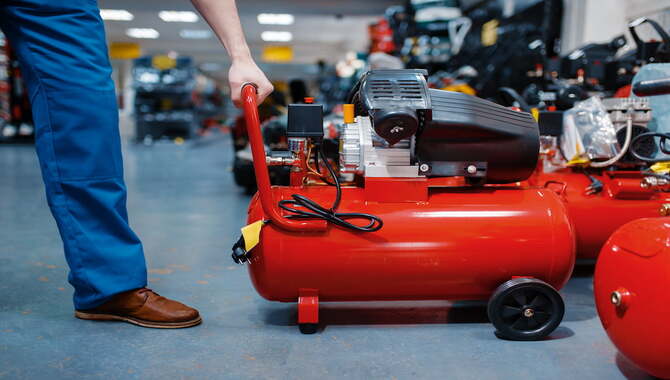
Air compressors are highly useful tools that can be found in a variety of settings, from industrial factories to home workshops. However, these machines can be dangerous without proper safety precautions.
It is important to follow specific guidelines to ensure the safe operation of air compressors and protect yourself and others from potential hazards. One of the most important safety precautions when using an air compressor is always wearing protective gear, such as safety glasses, hearing protection, and work gloves.
This Will Help Prevent Injuries From Flying Debris Or Loud Noises
Additionally, it is crucial to always read and follow the manufacturer’s instructions and warnings before using an air compressor. This includes properly grounding the machine and never exceeding the maximum pressure rating. Another important safety precaution is regularly inspecting and maintaining the compressor.
Check for any signs of wear or damage and repair or replace faulty components. By following these safety precautions, users can ensure air compressors’ safe and effective use in various settings.
How To Maintain An Air Compressor Some Tips And Tricks
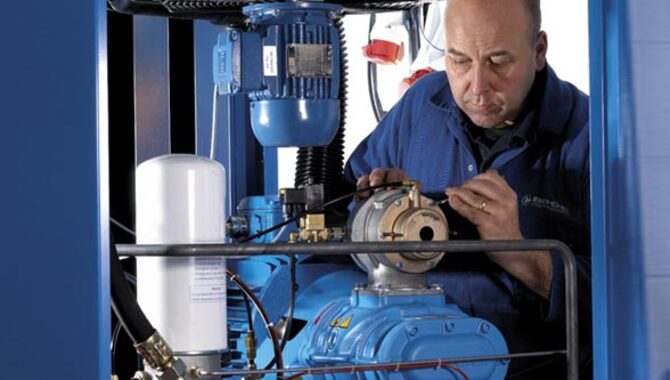
If your air compressor is a crucial part of your work, it’s important to know how to maintain it to ensure it runs smoothly and safely properly. Here are some tips and tricks to help you maintain your air compressor. First, always check your compressor’s oil level and condition before and after each use.
Dirty oil can cause damage to the compressor, so it’s important to change it regularly. Regularly drain the compressor’s tank to prevent rust and moisture buildup. Another useful tip is regularly cleaning the air filters to ensure the compressor can function correctly. This will prevent clogging and ensure that the compressor operates at its full potential.
Finally, always follow the manufacturer’s guidelines for maintenance and care. This includes regular inspections, lubrication, and replacement of parts as needed. By following these tips and tricks, you can enjoy the benefits of a well-maintained.
Conclusion
Air Compressor Maintenance is an essential task that requires attention to detail and adherence to proper procedures. Neglecting maintenance can lead to costly repairs or even replacement of the compressor.
By following the steps outlined in this article, individuals can ensure that their air compressors remain in good condition and continue to perform efficiently. Regular inspection, cleaning, and lubrication are all key components of proper maintenance and should be performed regularly.
It is also important to use only high-quality replacement parts and to seek professional assistance when necessary. By taking these steps, individuals can extend the lifespan of their air compressors and ensure that they continue to operate effectively for years to come.
FAQs
1.What Is The Daily Maintenance For An Air Compressor?
Ans: The daily maintenance for an air compressor includes checking the oil level and ensuring it is at the correct level, draining any water or condensation from the tank, and inspecting the air filter.
2.Can The Air Compressor Run For 24 Hours?
Ans: It is not recommended to run an air compressor continuously for 24 hours as it can cause damage to the motor and other components.
3.How Many Hours Can An Air Compressor Run?
Ans: The number of hours an air compressor can run depends on its make and model and the level of maintenance it receives. Some air compressors are designed for continuous use and can run for hours or even days without being turned off.
4.What Happens If The Air Compressor Runs Continuously
Ans: If the air compressor runs continuously, it can overheat and cause damage to the motor or other components.
5.What Causes Air Compressor Failure?
Ans: Several factors can cause air compressor failure, including inadequate lubrication, overheating, incorrect installation or maintenance, excessive moisture in the compressed air, worn out or damaged parts, and improper usage or operation.



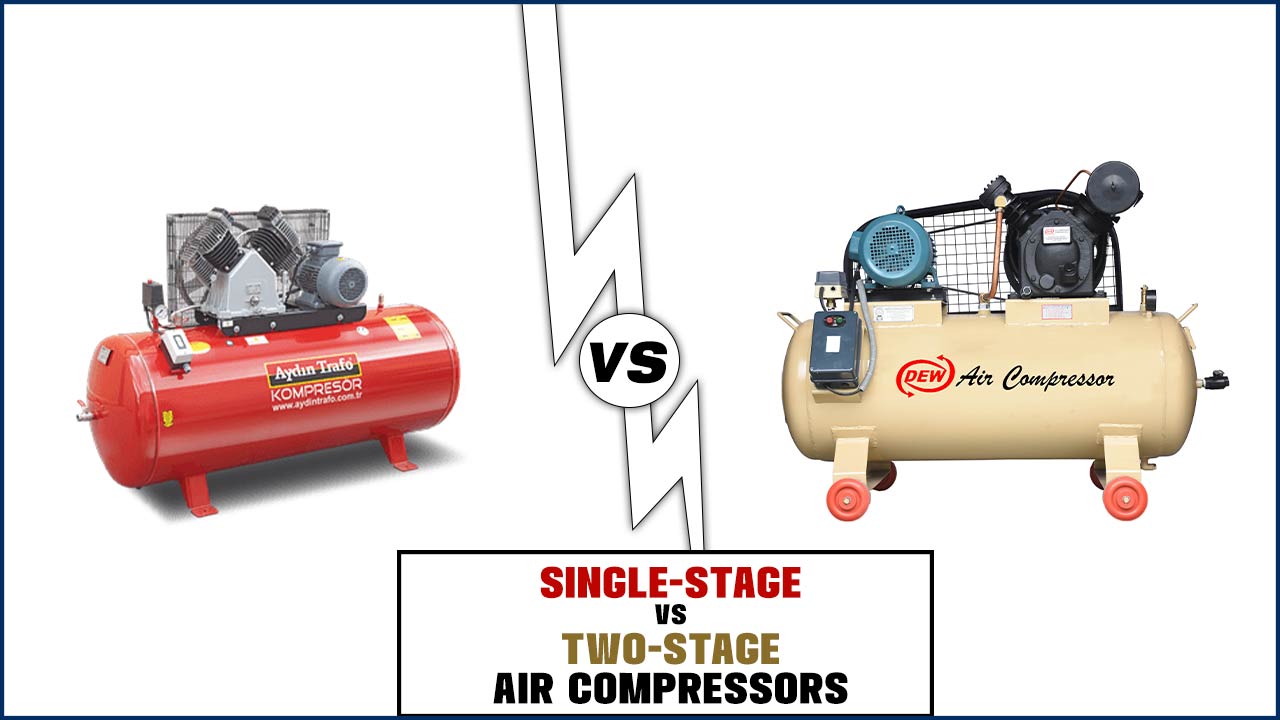
![7 Best 110V Air Compressor 2022 [Reviews With Buying Guide]](https://accuratepicker.com/wp-content/uploads/2023/05/Best-110V-Air-Compressor.jpg)
